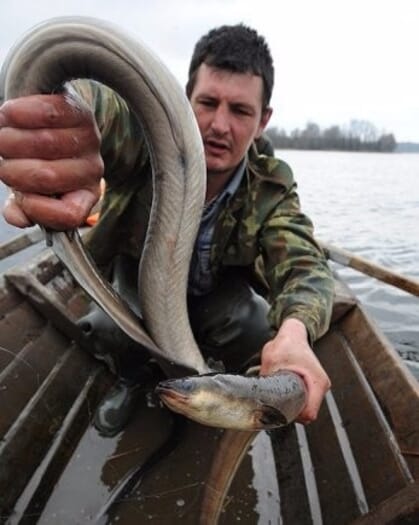Details of the ban, which were released the European Commission (EC) last week as part of its annual proposal for fishing opportunities in the Baltic 2018, include calling a halt to all marine eel commercial and recreational fisheries in the area. According to a statement released by Europêche: “this radical measure comes as a surprise to fisheries associations which were not previously consulted. Such a prohibition would hit particularly small-scale fishers that are critically dependent on this species.”
Eel is a very high value product, most of which is sold directly as smoked fish. This species comes as a much-needed additional income for fishers, absolutely essential for their economic survival, according to the fisheries body. This is even more true in view, according to Europêche, following the quota reduction of 56% for cod and 54% for herring in the Western Baltic Sea.

© Europeche
Javier Garat, President of Europêche, declared: “On numerous occasions we have stressed that any fisheries ban must be taken as a last resort. Furthermore, it should be accompanied by palliative measures and all stakeholders affected must be previously consulted. Small-scale Baltic fishers are already enduring hefty cuts in other key stocks and this prohibition comes as another nail in their coffin. There are many factors contributing to the bad shape of the stock (pollution, urban development, tourism, etc...) not related to fisheries, but our fishers are the ones paying the price. We advocate better implementation of the measures adopted and call on the Council of the EU to adopt a rational reduction of the TAC, but in any case, not a total ban.”
The pan-European eel stock has declined during the last decades, but Europêche argues that the glass eel recruitment is stabilised at a low level, with a low but significant increase in the last years. The EU has produced management plans in 2007 with a set of measures to help rebuild the stock: limiting (professional and recreational) fisheries; facilitating fish migration through the rivers and restocking suitable inland waters with young eel. The management plans aim at achieving a rate of 40% of silver eels migrating to the spawning grounds based on the natural capacity of river systems and coastal waters.
Representatives of the Baltic fisheries hold the EC responsible for not having taken care of the implementation of the agreed management plans in all countries. Particularly grave is the illegal export of glass eel to Asia; a problem which still persists. Europêche argues that the termination of illegal exports and more restocking should be the priorities for eel management, not a blanket ban. Prohibition that many see as a first step towards a total ban on all eel fisheries in Europe. In numerous Baltic coastal areas, huge restocking programs are running. The sector believes that the ban of this fishery would be counterproductive because it reduces the ability for fishermen to finance their share of restocking where it is needed.
The fishing body also states that the running consultation process within the Baltic Advisory Council on general measures for eel recovery was neglected. The views of the stakeholders participating in this body were simply ignored, since the consultation has been just finalised and the EC launched its proposal without having analysed the views of those heavily impacted by this radical measure. This approach shows little respect for public consultations and fishermen’s views.
Europêche represents the fisheries sector in Europe. Currently, the association comprises 14 national organisations of fishing enterprises from Denmark, Germany, Spain, France, Italy, Netherlands, Latvia, Poland and the UK.

